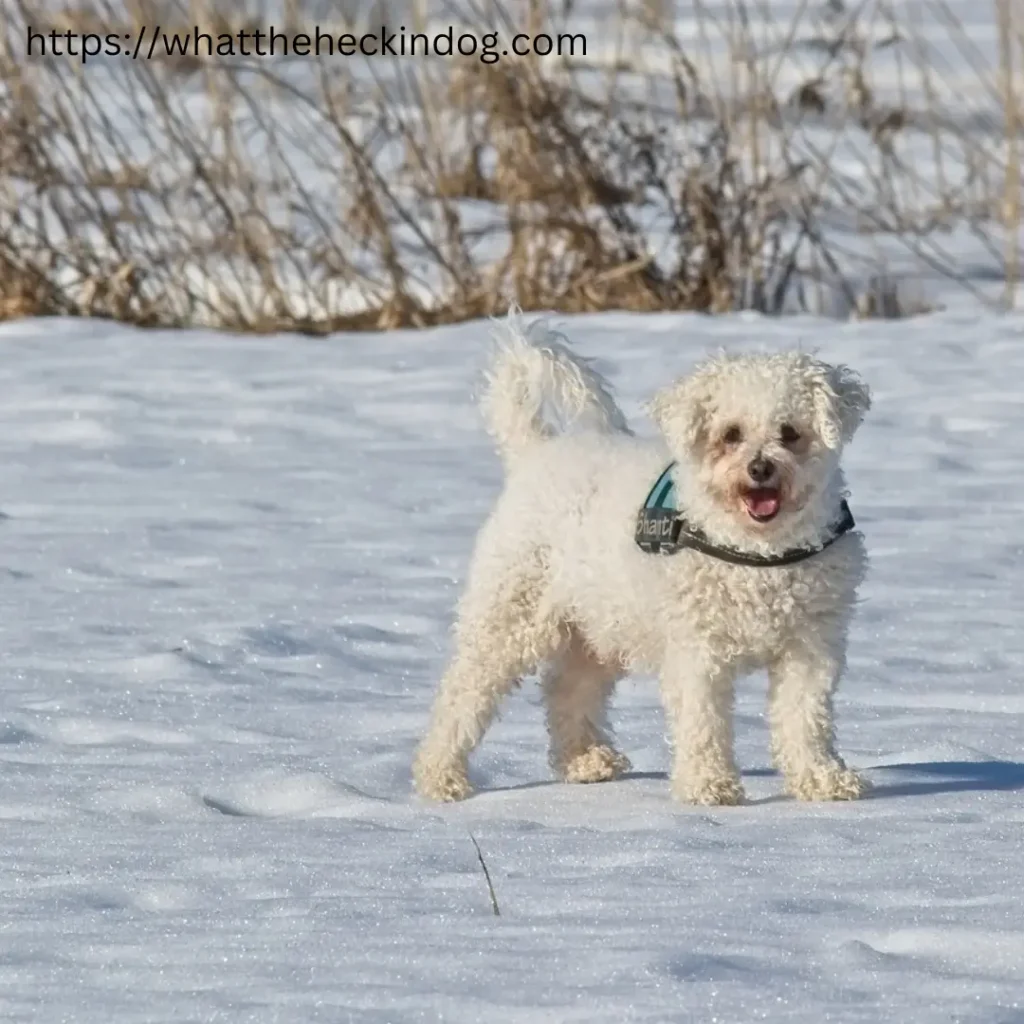Bringing a Bichon Frise puppy into your home is like bringing a little bundle of joy into your home and a hug. Bichon Frise puppies are irresistibly charming and energetic, they quickly become beloved pets. A good-sized bichon will cast a foot-long shadow at the shoulder. The glory of the breed is a white hypoallergenic coat, which is plush and velvety to the touch, with rounded head hair that reveals large nose and lips, dark eyes and dark skin.
Known for their hypoallergenic coats and friendly nature, these adorable dogs are ideal for allergy-prone families or those looking for a low-shedding breed. Daily walks and interactive playtime will keep their trademark curly coat looking its best, and regular grooming routines will keep them happy and healthy.
Bichon Frise breed dogs are also very trainable and eager to please, making them perfect for agility and obedience training. Your Bichon Frise puppy will become a devoted and loving lifelong friend who will fill you with countless smiles and wagging tails if given the right care, love and attention.

Bichon Frise Puppy Care:
Bichon Frise Puppy Health:
A dog’s overall health depends on routine dental treatments, vaccinations and veterinary examinations.
Bichon Frise Puppy Exercise:
Playtime, interactive toys, and daily walks help keep Bichon Frize puppies cognitively and physically engaged.
Bichon Frise Puppy Training:
Bichon Frise puppy are able to acquire social and obedience skills when trained based on positive reinforcement.
Bichon Frise Puppy Nutrition:
Regular feeding schedules, portion control, and high-quality dog food promote healthy growth and development.

Bichon Frise Colors
White:
Bichon Frises are most commonly known for their pristine white coats, which give them their distinctive fluffy appearance.
Cream:
Some Bichon Frise puppy have markings or patches on their coats that are cream in color, giving them a slight variation in overall appearance.
Apricot:
To add warmth to their appearance, Bichon Frise puppy occasionally display apricot-colored highlights or patches on their coats.
White with Buff or Cream:
Some Bichon Frise coats combine white fur with patches of buff or cream hue, creating a beautiful contrast.
Also Read:
https://whattheheckindog.com/wp-admin/post.php?post=20&action=edit
Bichon Frise Weight
Female Bichon Frises weigh less than males, averaging 10 to 18 pounds. They should maintain a healthy weight to stay healthy as obesity can lead to a number of health problems. Keeping your Bichon Frize at the right weight and promoting their general health requires regular exercise, good nutrition and portion control.
Bichon Frise Behavior Problems
When left alone for long periods of time, the Bichon Frise may exhibit destructive tendencies, excessive barking, or separation anxiety. These problems can be avoided by early socialization, continuous training and mental stimulation. The key to treating any behavioral problems and creating a well-behaved, well-behaved Bichon Frise companion is to use positive reinforcement strategies in conjunction with patient coaching.

Bichon Frise Puppy Price
The price of a Bichon Frise puppy can vary based on factors such as the breeder’s reputation, bloodline, location and breed of dog. On average, expect to pay anywhere from $800 to $2,500 for a Bichon Frize puppy from a reputable breeder. Adopting from a rescue or shelter may offer a more affordable option, typically $50 to $500, which includes vaccinations and spaying/neutering costs.
Bichon Frise Grooming
Grooming the Bichon Frise is essential to maintain their famous fluffy coat and overall health. Regular brushing at least a few times a week prevents matting and tangles. Professional grooming every 4 to 6 weeks helps maintain their appearance. Frequent bathing, ear cleaning and nail trimming are also important to keep them clean and comfortable.

What Do Bichon Frise Usually Die From
Buchanan Fries, like all dog breeds, can suffer from various health problems as they age. Common causes of death in the Bichon Frize include age-related conditions such as organ failure, cancer, heart disease, or neurological disorders. Additionally, they may suffer from breed-specific health problems such as dental problems, skin allergies, or immune system disorders. Regular veterinary checkups and a healthy lifestyle can help reduce these risks and prolong their lifespan.
